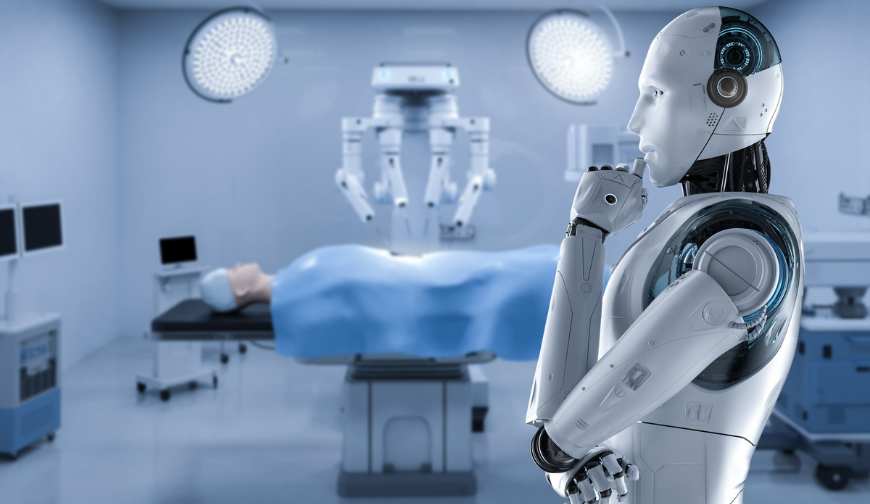Robotics surgery represents a revolutionary advancement in the field of medicine, merging cutting-edge technology with surgical procedures to enhance precision and improve patient outcomes. This innovative approach utilizes robotic systems controlled by surgeons to perform intricate procedures with unparalleled accuracy.
Evolution of AI in Surgery
The integration of artificial intelligence (AI) in surgery has been a progressive journey. Initially, AI was used for diagnostic purposes and preoperative planning. However, with advancements in technology, AI has become an integral part of robotic surgery, facilitating real-time adjustments and enhancing surgical precision.
Advantages of Robotics Surgery
Robotic surgery offers several advantages over traditional techniques. Firstly, it enables unparalleled precision, allowing surgeons to perform delicate procedures with enhanced accuracy. Moreover, robotics surgery is minimally invasive, resulting in reduced trauma to surrounding tissues and faster recovery times for patients.
AI-Powered Surgical Inventions
Several AI-powered surgical systems have revolutionized the field of robotics surgery. The Da Vinci Surgical System, for instance, utilizes robotic arms controlled by surgeons to perform complex procedures with enhanced dexterity. Similarly, the Versius Surgical System and Mako Robotic-Arm Assisted Surgery have further expanded the capabilities of robotics surgery, offering versatile solutions for various surgical specialties.
Applications of AI in Robotics Surgery
The applications of AI in robotics surgery are extensive and diverse. From cardiac surgery to neurosurgery and orthopedic procedures, AI-powered systems have demonstrated remarkable efficacy in enhancing surgical outcomes and improving patient safety.
Challenges and Limitations
Despite its numerous benefits, robotics surgery also poses certain challenges. One of the primary concerns is the cost associated with implementing and maintaining robotic systems. Additionally, surgeon training is essential to ensure proficiency in operating these advanced technologies. Moreover, ethical considerations regarding patient consent and autonomy remain pertinent in the context of robotics surgery.
Future Prospects
The future of robotics surgery holds immense potential for further advancements. Continued research and development efforts aim to enhance the capabilities of AI-powered systems, making them more adaptable and versatile. Additionally, the expansion of applications into new surgical specialties promises to revolutionize healthcare delivery and improve patient outcomes.
Conclusion
Robotics surgery powered by artificial intelligence represents a significant milestone in the field of medicine. With its unparalleled precision, minimally invasive approach, and expanding repertoire of applications, robotics surgery is poised to revolutionize surgical practice and redefine standards of patient care.
FAQs
- What is robotics surgery? Robotics surgery involves the use of robotic systems controlled by surgeons to perform intricate procedures with enhanced precision.
- How does AI enhance robotics surgery? AI enables real-time adjustments and enhances surgical precision in robotics surgery, leading to improved patient outcomes.
- What are some examples of AI-powered surgical inventions? Examples include the Da Vinci Surgical System, Versius Surgical System, and Mako Robotic-Arm Assisted Surgery.
- What are the challenges associated with robotics surgery? Challenges include cost implications, surgeon training, and ethical considerations.
- What does the future hold for robotics surgery? The future of robotics surgery entails further advancements in AI capabilities and the expansion of applications into new surgical specialties.
